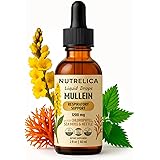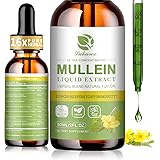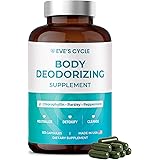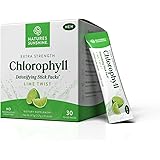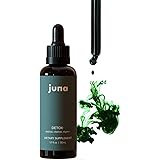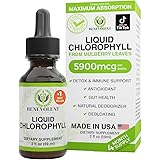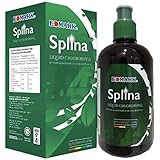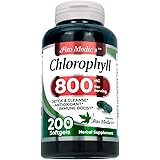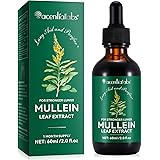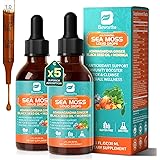The video above delves into the surprising power of Epsom salt, a simple mineral compound that has been a healing remedy for centuries. If you’re a senior or caring for one, you’ve likely encountered common health challenges like persistent joint pain, restless nights, or chronic muscle stiffness. While many solutions often involve complicated regimens, the truth is that relief might be found in something as straightforward as a warm, mineral-rich soak. This article expands on the video’s insights, offering a deeper look into the many ways Epsom salt (magnesium sulfate) can support senior health, alleviate daily discomforts, and improve overall well-being.
What is Epsom Salt? More Than Just a Mineral Compound
Despite its name, Epsom salt is not actually a culinary salt. Instead, it is a naturally occurring mineral compound composed of magnesium, sulfur, and oxygen, known chemically as magnesium sulfate. Its origins trace back over 400 years to an English village named Epsom, where a farmer discovered the remarkable healing properties of his well water. This “miracle water,” initially noted for its bitter taste, gained fame as people experienced relief from skin rashes and aches after bathing in it.
The true power of Epsom salt unfolds when its crystals dissolve in warm water. Here, the compound breaks down into magnesium and sulfate ions. These are substances your body readily recognizes and can absorb, primarily through the skin during a bath or soak. Magnesium, in particular, is a vital mineral, playing a role in more than 300 biochemical reactions within the body, influencing everything from muscle contraction and nerve function to blood sugar control and blood pressure regulation.
As we age, magnesium levels often decline, leading to various symptoms such as muscle tightness, nerve signal misfires, and persistent fatigue. Soaking in Epsom salt allows for transdermal absorption, helping to replenish these crucial magnesium levels gently and efficiently. This can lead to reduced tension, regulated nerve signals, fewer cramps, and a profound sense of calm. Meanwhile, sulfate, the other key component, works behind the scenes, supporting detoxification pathways and aiding in tissue repair by playing a role in protein formation. This dual action of magnesium and sulfate, combined with the therapeutic warmth of the water, enhances circulation, delivers more oxygen to tissues, and helps to reduce inflammation, making Epsom salt a potent natural recovery system.
Targeted Relief: Epsom Salt for Common Senior Ailments
Ease Sore Muscles and Joints
One of the most widely appreciated benefits of Epsom salt for seniors is its ability to soothe aching muscles and stiff joints. Chronic pain in these areas often stems from inflammation, a natural bodily response that tends to intensify with age. As the body’s natural anti-inflammatory mechanisms weaken, conditions like arthritis and general stiffness become more prevalent.
Magnesium sulfate intervenes by helping to mitigate pain signals and reduce inflammation. Research, such as a clinical study from Indonesia, has shown promising results, with magnesium gel at just 3% strength performing almost as effectively as a common anti-inflammatory drug in relieving joint pain. Even reputable institutions like the Mayo Clinic include magnesium sulfate soaks on their list of safe remedies for various discomforts, including soreness, sprains, and stiffness. The warm water of a soak further enhances this effect by increasing blood flow, which aids in healing, while the magnesium works at a chemical level to alleviate swelling and ease discomfort, making movement feel less strenuous.
Relieve Constipation Safely
Constipation is a common and often uncomfortable issue among seniors, impacting not just physical comfort but also mood and cognitive function. While dietary adjustments and hydration are critical long-term strategies, Epsom salt offers effective short-term relief when taken orally, though with important caveats.
When ingested as directed, Epsom salt acts as an osmotic laxative. The magnesium draws water into the intestines, which softens the stool and facilitates easier passage. This action typically brings relief within 30 minutes to 6 hours. The U.S. National Library of Medicine notes magnesium sulfate’s use in hospital settings for relieving acute constipation and preparing the bowel for medical procedures, highlighting its efficacy. However, it’s crucial to understand that Epsom salt is not intended for daily use. Relying too frequently on laxatives can lead to bowel dependence and disrupt natural digestive function. For seniors, safety is paramount; oral intake should ideally be under medical guidance or reserved for rare, urgent situations. Overuse can cause diarrhea, dehydration, and electrolyte imbalances, potentially straining the heart and kidneys. Always measure carefully and ensure adequate hydration when using Epsom salt for this purpose.
Reduce Stress and Improve Sleep Quality
Stress and poor sleep are significant challenges for many older adults. The experience of tossing and turning, or waking frequently throughout the night, can severely impact daily energy and overall quality of life. Magnesium plays a pivotal role in regulating sleep and managing stress, making Epsom salt soaks a powerful tool for these concerns.
Magnesium is essential for the production of melatonin, the hormone that signals the body to prepare for sleep. Simultaneously, it helps to reduce cortisol, the primary stress hormone that can keep the mind active and wired. It also aids in muscle relaxation, allowing the body to release tension accumulated throughout the day. A clinical trial demonstrated that magnesium supplementation helped elderly individuals fall asleep faster, stay asleep longer, and experience fewer nighttime awakenings, significantly improving their sleep quality. Soaking in an Epsom salt bath before bed allows for the absorption of magnesium through the skin, which can calm the nervous system and induce a state of relaxation. Studies have even linked regular Epsom salt baths and flotation therapy (tanks filled with dense Epsom salt water) to reduced anxiety, deeper relaxation, and improved sleep. The warmth of the water further enhances these effects by increasing circulation and signaling to the nervous system that it’s time to unwind. A 20-30 minute soak can help transition the body into sleep mode, leading to quieter nights and more refreshing mornings.
Gentle Skin Exfoliation and Soothing
As skin ages, it often becomes drier, rougher, and more sensitive, manifesting as flakiness, irritation, or a dull complexion. Epsom salt offers a simple, natural solution to support skin health, both in appearance and feel. When applied topically, magnesium sulfate acts as a gentle exfoliant and a calming agent for the skin.
Dissolved in warm water, Epsom salt can be used as a rinse or applied with a cloth to gently scrub away dead skin cells, clear pores, and soften rough patches without stripping the skin of its natural oils. This process encourages healthy cell turnover and allows moisturizers to penetrate more effectively. Beyond physical exfoliation, magnesium helps to regulate inflammation and oxidative stress, which are underlying causes of conditions like eczema, acne, and premature aging. A 2017 study published in Scientific Reports indicated that magnesium salts improved skin hydration and reduced inflammation. Moreover, the sulfate component aids in detoxification, drawing out impurities that can clog pores and irritate sensitive skin. Used once or twice a week, Epsom salt soaks provide an affordable and safe way to cleanse, soothe, and protect aging skin, always followed by a good moisturizer to lock in hydration.
Alleviate Knee Pain and Water Retention
Knee pain and water retention often go hand-in-hand for seniors, creating a cycle of discomfort and reduced mobility. Knee issues can arise from arthritis, joint degeneration, or simple overuse, while swelling in the lower legs (edema) adds pressure and heaviness, making movement more challenging. A targeted Epsom salt soak can offer significant relief.
Filling a bucket or tub deep enough to cover the knees with warm water and adding 50 to 100 grams of Epsom salt allows the therapeutic properties to act directly on the affected areas. The warmth stimulates blood flow, helping to relax connective tissues and ease tension. Simultaneously, the magnesium may assist in drawing out retained fluids through the skin via osmosis, while also relaxing the surrounding muscles. Clinical insights suggest that consistent use of these soaks can lead to improved mobility and a noticeable reduction in swelling and tightness. Many individuals report feeling lighter and experiencing greater comfort in their legs and knees after incorporating this simple habit into their weekly routine. Just 15-20 minutes, once or twice a week, can help release pressure and make daily activities feel significantly easier.
Combat Persistent Foot Odor
Foot odor, while often embarrassing, is a signal that bacteria are flourishing in the warm, damp environment of the feet, feeding on sweat and dead skin cells. For seniors, this problem can intensify due to slower circulation and changes in sweat regulation, creating ideal conditions for odor-causing microbes like Corynebacterium to thrive, especially between toes and in shoe linings.
An Epsom salt foot soak provides an effective and natural solution. Dissolving approximately half a cup of Epsom salt in a basin of warm water and soaking the feet for 15-20 minutes yields two primary benefits. Firstly, the salt helps to draw out excess moisture from the skin, reducing the dampness that bacteria love. Secondly, it creates a surface environment that is less conducive to bacterial growth. While Epsom salt is not a direct disinfectant, by disrupting the conditions that microbes need to flourish, it helps to break the odor cycle naturally. Post-soak care is crucial: dry your feet completely, especially between the toes, and follow with a light moisturizer. Pairing these soaks with good daily habits, such as rotating shoes and wearing clean, breathable socks, can significantly enhance the effects, leading to fresher feet and increased confidence.
Accelerate Sports Recovery and Post-Surgery Healing
Recovery, whether from strenuous exercise or a medical procedure, demands significant support from the body. After an intense workout, muscles often experience delayed onset muscle soreness (DOMS), characterized by tightness and fatigue due to microscopic tears in muscle fibers. Similarly, post-surgery, individuals often face inflammation, stiffness, and discomfort that hinder everyday tasks. Epsom salt (magnesium sulfate) offers multifaceted support for both scenarios.
For decades, Epsom salt has been utilized in sports therapy and rehabilitation due to its potential to relax muscles, reduce inflammation, and aid in electrolyte balance. When dissolved in warm water, the magnesium ions, even if absorbed modestly through the skin, contribute to these benefits. The warmth of the soak increases blood flow, which is crucial for flushing out metabolic waste products like lactic acid that contribute to stiffness. Magnesium, in turn, helps tight muscles relax, calming spasms and alleviating cramps. For those recovering from surgery, particularly orthopedic procedures, gentle Epsom salt baths can offer relief once wounds are closed. Doctors may recommend these soaks to reduce puffiness, improve mobility, and support the body’s natural repair mechanisms. Beyond the physical, recovery also has a mental component; stress, restlessness, and poor sleep can impede healing. Magnesium’s role in supporting the nervous system, reducing cortisol, and promoting relaxation can lead to deeper sleep and more effective overall recovery. Thus, Epsom salt provides a low-effort, natural tool to smooth the recovery process, enhancing movement and reducing discomfort.
Heal Cracked Heels and Ward Off Infections
Cracked heels are more than a cosmetic concern; the splits in the skin create openings that serve as direct pathways for bacteria and fungi, posing a significant infection risk, especially for seniors. With thinner, drier skin and a slower immune response, even minor wounds can lead to pain and serious infections. Epsom salt offers targeted support in these situations.
Soaking feet in warm water with dissolved Epsom salt helps in three crucial ways: it reduces inflammation, softens hardened skin, and creates an environment less hospitable to harmful microbes. Magnesium from the salt can calm irritated skin, easing discomfort and reducing redness. Simultaneously, the soak softens rough patches and calluses, facilitating the shedding of dead skin layers and initiating the healing process. Fungal infections thrive in moist, enclosed spaces, particularly within the tiny cracks of the heels. Epsom salt assists by drawing out excess moisture and gently exfoliating the surface, making it harder for fungi to persist. While not an antibiotic, magnesium sulfate may help slow bacterial activity and bolster the skin’s natural defense mechanisms. A dermatology review on bathing practices indicates that mineral salts like Epsom salt can restore the skin’s ionic balance, aiding in rebuilding its protective barrier and accelerating repair. Consistent use, even just twice a week, can prevent cracks from worsening and reduce the risk of infection, working at the root of the problem to restore healthy skin.
Effectively Eliminate Foot Cramps
The sudden, intense pain of a foot or calf cramp, especially when it strikes at night, can be incredibly disruptive to sleep. For many seniors, these nocturnal cramps are a frequent and unwelcome occurrence. Several factors contribute to their increased prevalence with age, including declining magnesium levels, less efficient magnesium absorption, slower circulation to the lower legs, and imbalances in electrolytes like magnesium, potassium, and calcium, all of which can lead to muscle fatigue and spasms.
While most research on cramp prevention focuses on oral supplements, newer studies suggest that soaking in magnesium-rich water, such as an Epsom salt bath, may also provide relief. Although the extent of magnesium absorption through the skin is debated, many users report fewer cramps and improved sleep after consistent use. The warmth of the water plays its own role by promoting circulation, relaxing muscle fibers, and helping to flush out lactic acid, a byproduct that can trigger spasms. The combined effect of heat and magnesium addresses both the symptoms and potential underlying causes of cramps. A simple 15-20 minute foot soak in warm Epsom salt water before bed can reduce the frequency and severity of nighttime cramps, leading to deeper, more restful sleep and fewer painful interruptions.
Enhance Circulation in Cold Extremities
As we age, blood flow to the extremities, particularly the hands and feet, often diminishes. This can result in sensations of coldness, stiffness, or numbness, especially during colder months or at night. Beyond being uncomfortable, poor circulation can disrupt sleep and reduce overall mobility. An Epsom salt soak can offer a gentle, warming solution to this common issue.
Soaking in warm water infused with Epsom salt supports circulation in two key ways. The heat itself helps to open blood vessels and encourages improved blood flow throughout the limbs. Concurrently, magnesium plays a role in supporting the flexibility of blood vessels and helps to relax the surrounding tissues, further facilitating circulation. For many seniors, incorporating this simple soak into their routine becomes a comforting ritual that naturally warms cold feet and hands, improving overall blood flow and enhancing comfort.
To use Epsom salt for general skin care and exfoliation, dissolve a small spoonful in warm water. Dip a soft cloth into the mixture, wring it out, and gently wipe areas such as your face, elbows, or heels. This action helps to lift dead skin cells, calm irritation, and support the skin’s natural healing processes. Always remember to moisturize your skin after every soak to lock in hydration and maintain its smoothness and protection.
However, it is vital to observe a few important precautions for safe Epsom salt use. Always use warm, not hot, water, especially if you have sensitive skin, diabetes, or circulation problems. Never ingest Epsom salt orally unless explicitly advised by a medical professional. Avoid overdoing it; two to three times a week is generally sufficient for most benefits. After each soak, ensure your skin is thoroughly dried, apply a moisturizer, and drink a full glass of water to rehydrate your body. If you have any open wounds, skin infections, or underlying kidney conditions, it is imperative to consult your doctor before using Epsom salt. This natural remedy, when used safely and consistently, can truly deliver powerful results, offering relief from pain, improved sleep, and enhanced well-being for seniors.


